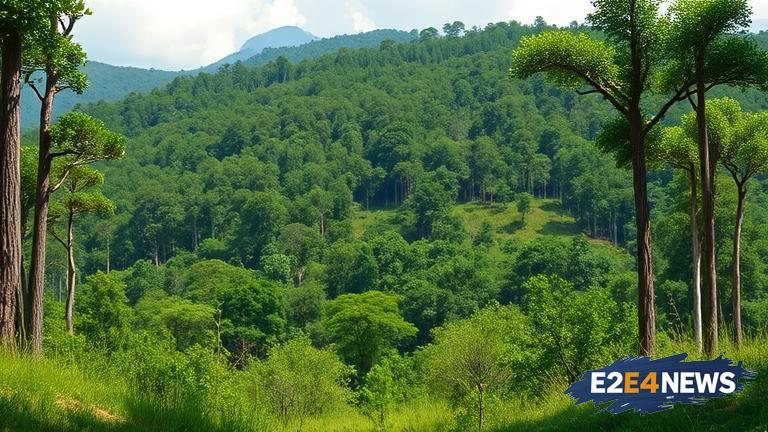A Kenyan court has ruled in favor of Dorman Coffee, a company owned by businessman Chris Kirubi, in a long-standing boundary dispute with the Kenya Forest Service (KFS) over a piece of land in Karura Forest. The court’s decision has sparked controversy, with some arguing that it could set a precedent for further encroachment into protected areas. The KFS had argued that the land in question was part of the forest and therefore under its jurisdiction. However, the court found that the boundary between the forest and the coffee company’s land had been incorrectly marked. The dispute has been ongoing for several years, with both parties presenting different maps and surveys to support their claims. The KFS had claimed that Dorman Coffee had encroached on the forest land, while the company maintained that it had been farming the land for decades. The court’s ruling has been seen as a victory for the coffee company, but it has also raised concerns about the potential impact on the environment. Karura Forest is one of the largest urban forests in the world and is home to a wide range of flora and fauna. The forest is also an important water catchment area and provides ecosystem services to the surrounding community. The KFS has been working to protect the forest from encroachment and degradation, but the court’s ruling has highlighted the challenges faced by the agency in its efforts to conserve the forest. The case has also sparked debate about the role of the judiciary in environmental conservation. Some have argued that the court’s decision has undermined the KFS’s efforts to protect the forest, while others have seen it as a necessary check on the agency’s powers. The coffee company has welcomed the court’s ruling, saying that it has finally brought an end to the long-standing dispute. However, environmentalists have expressed concern about the potential impact of the ruling on the forest and its inhabitants. The case has also highlighted the need for clearer boundaries and more effective management of protected areas. The KFS has said that it will appeal the court’s decision, arguing that it has serious implications for the conservation of the forest. The appeal is expected to be heard in the coming months. In the meantime, the coffee company has been allowed to continue farming the land, pending the outcome of the appeal. The case has sparked widespread interest, with many Kenyans following the developments closely. The court’s ruling has also been seen as a test of the country’s environmental laws and the ability of the judiciary to interpret them. The KFS has been working to strengthen its capacity to manage and conserve the forest, but the court’s ruling has highlighted the challenges faced by the agency. The case has also raised questions about the role of private companies in environmental conservation. While some have argued that private companies can play a positive role in conservation, others have expressed concern about the potential for companies to prioritize profits over environmental protection. The court’s ruling has also sparked debate about the need for more effective regulation of private companies operating in protected areas. The case is expected to have significant implications for environmental conservation in Kenya, and its outcome will be closely watched by environmentalists and conservationists. The KFS has said that it will continue to work to protect the forest, despite the court’s ruling. The agency has also called for greater support from the government and the public in its efforts to conserve the forest. The case has highlighted the need for a more coordinated approach to environmental conservation, involving government agencies, private companies, and local communities. The court’s ruling has also sparked calls for greater transparency and accountability in the management of protected areas. The case is a reminder of the complex challenges faced by environmental conservation efforts in Kenya, and the need for a more effective and coordinated approach to protecting the country’s natural resources.
